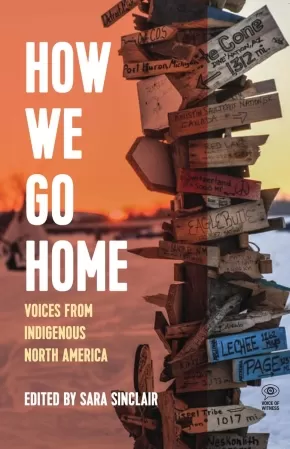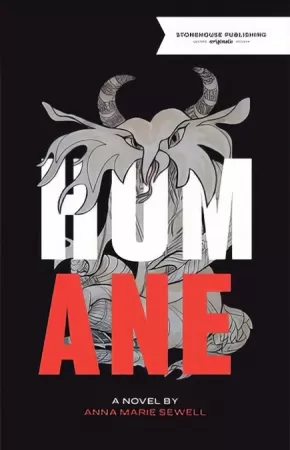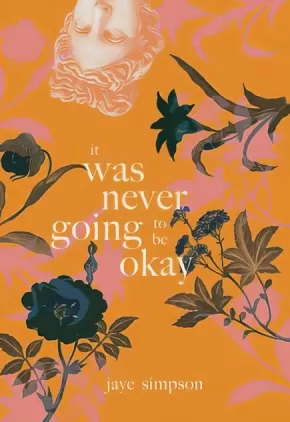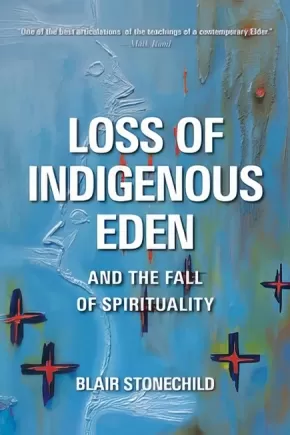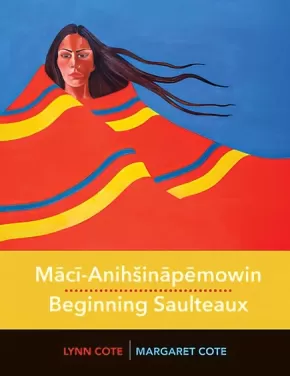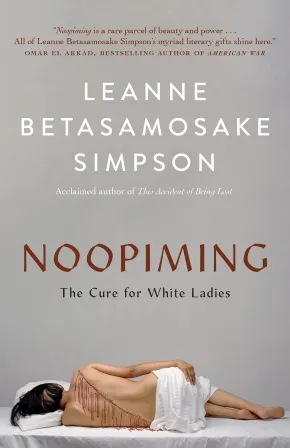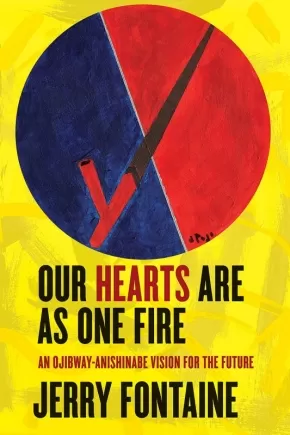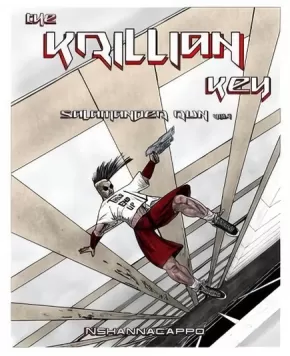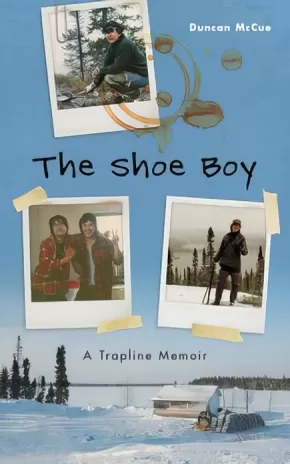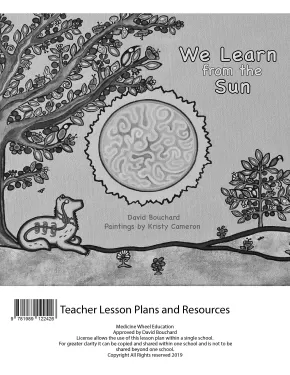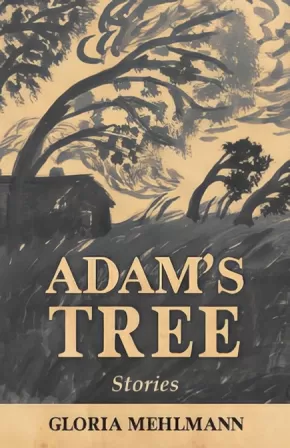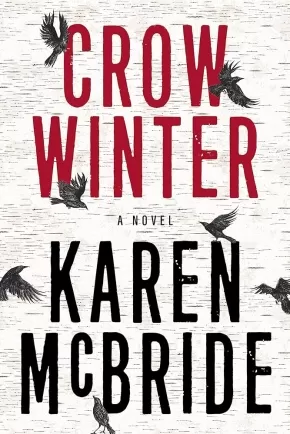
Anishinaabeg
121
-
135
of
200 Results;
Sort By
Go To
of 14
How We Go Home: Voices from Indigenous North America
$26.00
Editors:
Format:
Paperback
Text Content Territories:
Indigenous Canadian; First Nations; Salish; Coast Salish; Snuneymuxw ; Saanich (WSANEC); Tsartlip; Haudenosaunee (Iroquois); Tuscarora; Kanyen'keha:ka (Mohawk); Gitxsan (Gitksan); Anishinaabeg; Ojibway; Saulteaux; Oji-Cree; Métis; Indigenous American; Native American; Sioux; Lakota; Sicangu Oyate (Rosebud Sioux Tribe); Santa Clara Pueblo; Mojave; Apache; Lipan Apache Tribe of Texas;
Reading Level: N/A
ISBN / Barcode: 9781773633381
Synopsis:
Synopsis:
In myriad ways, each narrator's life has been shaped by loss, injustice, and resilience--and by the struggle of how to share space with settler nations whose essential aim is to take all that is Indigenous.
Hear from Jasilyn Charger, one of the first five people to set up camp at Standing Rock, which kickstarted a movement of Water Protectors that roused the world; Gladys Radek, a survivor of sexual violence whose niece disappeared along Canada's Highway of Tears, who became a family advocate for the National Inquiry into Missing and Murdered Indigenous Women and Girls; and Marian Naranjo, herself the subject of a secret radiation test while in high school, who went on to drive Santa Clara Pueblo toward compiling an environmental impact statement on the consequences of living next to Los Alamos National Laboratory. Theirs are stories among many of the ongoing contemporary struggles to preserve Indigenous lands and lives--and of how we go home.
Reviews
“How We Go Home is a testament to modern-day Indigenous revitalization, often in the face of the direst of circumstances. Told as firsthand accounts on the frontlines of resistance and resurgence, these life stories inspire and remind that Indigenous life is all about building a community through the gifts we offer and the stories we tell.”— Niigaan Sinclair, associate professor, Department of Native Studies at the University of Manitoba and columnist, Winnipeg Free Press
“The voices of How We Go Home are singing a chorus of love and belonging alongside the heat of resistance, and the sound of Indigenous life joyfully dances off these pages.”—Leanne Betasamosake Simpson, author of As We Have Always Done
“How We Go Home confirms that we all have stories. These stories teach us history, morality, identity, connection, empathy, understanding, and self-awareness. We hear the stories of our ancestors and they tell us who we are. We hear the stories of our heroes and they tell us what we can be." —Honourable Senator Murray Sinclair
Educator Information
Table of Contents
Editor’s Notes
Introduction (Sara Sinclair)
Executive Director’s Note (Mimi Lok)
Map
Gladys Radek, Terrace, Gitxsan / Wet’suwet’en First Nations—“When Tamara went missing, it took the breath out of me.”
Jasilyn Charger, Cheyenne River Sioux—“My son’s buried by the river. . . . I vowed to him that he’s gonna be safe, that no oil was gonna touch him.”
Wizipan Little Elk, Rosebud Lakota Tribe—“On the reservation, you have the beauty of the culture and our traditional knowledge contrasted with the reality of poverty.”
Geraldine Manson, Snuneymuxw First Nation—The nurse was trying to get me to sign a paper to put our baby, Derrick, up for adoption.”
Robert Ornelas, New York City, Lipan Apache / Ysleta del Sur Pueblo—“A part of the soul sickness for me was being ashamed . . . what we were being taught about Indians was so minimal and so negative.”
Ashley Hemmers, Fort Mojave Indian Tribe—“I didn’t work my ass off to get to Yale to be called a squaw.”
Ervin Chartrand, Selkirk, Métís/Salteaux—“They said I fit the description because I looked like six other kids with leather vests and long hair who looked Indian.”
James Favel, Winnipeg, Peguis First Nation “You’re a stakeholder because you’ve got to walk these streets every day.”
Marian Naranjo, Santa Clara Pueblo—“Indigenous peoples’ reason for being is to be the caretakers of Creator’s gifts—of the air, the water, the land.”
Blaine Wilson, Tsartlip First Nation “When I was twenty-five, thirty, there was more salmon and I was fishing every other day. Now I’m lucky to go once a week.”
Althea Guiboche, Winnipeg, Métis/Ojibwe/Salteaux “I had three babies under three years old and I was homeless.”
Vera Styres, Six Nations of the Grand River, Mohawk/Tuscarora“I was a ‘scabby, dirty little Indian.’”
Glossary
Historical Timeline of Indigenous North America
Essay: 1. The Trail of Broken Promises: US and Canadian Treaties with First Nations
Essay 2: “Indigenous Perspectives on Intergenerational Trauma”: An Interview with Johnna James
Essay 3: Indigenous Resurgence
Ten Things You Can Do
Further Reading
Acknowledgements
Additional Information
331 pages | 6.00" x 9.00" | Paperback
Humane
$19.95
Format:
Paperback
Text Content Territories:
Indigenous Canadian;
ISBN / Barcode: 9781988754246
Synopsis:
Synopsis:
Who steals a dog from a shelter after receiving a dream message from their grandmother?
Hazel Lesage never expected it to be her. Then again, she didn't plan on becoming an unlicensed PI, helping the 'throwaway people.' However much has changed in Amiskwaciy, the problem of poor Indigenous women and girls being expendable hasn't. Nobody else is going to help the Augusts find out who killed their daughter Nell; so Hazel takes the case. And then she takes the dog.
What follows will force Hazel and her family to confront the question of what it means to be Human, and what it matters to be Humane.
Additional Information
274 pages | 5.00" x 7.75"
it was never going to be okay
$18.95
Format:
Paperback
Text Content Territories:
Indigenous Canadian; First Nations; Anishinaabeg; Oji-Cree; Ojibway; Saulteaux; Cree (Nehiyawak); Swampy Cree ; Sapotaweyak Cree Nation;
Grade Levels: 12; University/College;
ISBN / Barcode: 9780889713826
Synopsis:
Synopsis:
it was never going to be okay is a collection of poetry and prose exploring the intimacies of understanding intergenerational trauma, Indigeneity and queerness, while addressing urban Indigenous diaspora and breaking down the limitations of sexual understanding as a trans woman. As a way to move from the linear timeline of healing and coming to terms with how trauma does not exist in subsequent happenings, it was never going to be okay tries to break down years of silence in simpson’s debut collection of poetry:
i am five
my sisters are saying boy
i do not know what the word means but—
i am bruised into knowing it: the blunt b,
the hollowness of the o, the blade of y
Awards
- 2021 Indigenous Voices Awards winner for Published Poetry in English.
Reviews
"jaye simpson’s it was never going to be okay is a symphony of unrelenting rage and undying hope that beckons to be heard, seen and held with the utmost care. In this stunning debut they speak truths to the complexities of the body, land and memory through an intimately structured and poignant cadence. This collection will leave you longing for more and, in the legacy of trans Indigenous literature, change lives." — Arielle Twist, author of Disintegrate/Dissociate
"jaye simpson marshals a vast economy of images because their subject matter is as large as an entire country, as the colonial past, as structures of oppression and indifference that undermine Indigenous and trans livability. At the level of craft, simpson makes use of the codes of tragedy, polemic, autobiography and the lyric artfully and powerfully. By the book’s end, buoyed by its final beautiful and tender section, a kind of love letter to trans Indigenous peoples, one is called on to build a new world. In this way, jaye simpson's poetry is a vital artifact of a decolonial future!" — Billy-Ray Belcourt, 2018 Griffin Poetry Prize winner for This Wound Is a World
Additional Information
112 pages | 5.50" x 8.00"
Loss of Indigenous Eden and the Fall of Spirituality
$32.95
Format:
Paperback
Text Content Territories:
Indigenous;
ISBN / Barcode: 9780889776999
Synopsis:
Synopsis:
As a follow-up to his award-winning The Knowledge Seeker: Embracing Indigenous Spirituality, Blair Stonechild continues his exploration of the Indigenous spiritual teachings passed down to him by Elders, and then moves his study further afield. He identifies the rise of what he terms a dominant wetigo worldview, marked by an all-consuming and destructive appetite that is antithetical to the relational philosophy of Indigenous thinking whereby all things are interrelated and in need of care and respect.
Based on Stonechild’s work with Indigenous peoples around the world, from Inuit communities in northern Canada, to the Mapuche in Chile, the Dalits in India and the Uighurs in the Xinjiang Autonomous Region of China, The Loss of Indigenous Eden and the Fall of Spirituality brings together and highlights the fundamental commonalities that connect all Indigenous nations, while calling for global recognition and respect of their rights and spirituality.
Reviews
“One of the best articulations in print of some introductory teachings of a contemporary Elder.” —Mark Rumi, professor of Religion and Culture, University of Winnipeg
“It is thought-provoking, philosophical, informative, and celebrates the resilience and strength of Indigenous spirituality and our relationships to the sacred.” —Kathleen E. Absolon-King, author of Kaandossiwin
Additional Information
288 pages | 6.00" x 9.00"
Mācī-Anihšināpēmowin / Beginning Saulteaux (10 in Stock) - ON SALE
$30.00 $34.95
Format:
Coil Bound
Text Content Territories:
Indigenous Canadian; First Nations; Anishinaabeg; Ojibway; Saulteaux;
ISBN / Barcode: 9780889777514
Synopsis:
Synopsis:
Mācī-Anihšināpēmowin / Beginning Saulteaux is an introductory look at one of the most widely spoken of all North American Indigenous languages, regionally known as Saulteaux, Ojibway, Ottawa (Odawa), Chippewa, and Algonquian. In an easy-to-use and easy-to-read series of lessons, both designed for self-study or for use in the classroom, Beginning Saulteaux will guide beginners through the language’s grammatical structures and spelling systems, as well as everyday terms and phrases. The book grounds the language in both traditional and contemporary contexts, and sheds light on the Saulteaux world view. For example, there is no word for good-bye in the language, so upon parting people will usually say Kika-wāpamin mīnawā, meaning “I’ll see you again.”
Educator & Series Information
The third in our Indigenous Languages for Beginners series, Beginning Saulteaux is an invaluable resource produced in consultation with Elders, Language Keepers, and community members, and continues our commitment to revitalizing Indigenous languages.
Additional Information
304 pages | 8.50" x 11.00" | Spiral Bound
Noopiming: The Cure for White Ladies
$22.99
Format:
Paperback
Text Content Territories:
Indigenous Canadian; First Nations; Anishinaabeg;
ISBN / Barcode: 9781487007645
Synopsis:
Synopsis:
Award-winning Nishnaabeg storyteller and writer Leanne Betasamosake Simpson returns with a bold reimagination of the novel, one that combines narrative and poetic fragments through a careful and fierce reclamation of Anishinaabe aesthetics.
Mashkawaji (they/them) lies frozen in the ice, remembering a long-ago time of hopeless connection and now finding freedom and solace in isolated suspension. They introduce us to the seven main characters: Akiwenzii, the old man who represents the narrator’s will; Ninaatig, the maple tree who represents their lungs; Mindimooyenh, the old woman who represents their conscience; Sabe, the giant who represents their marrow; Adik, the caribou who represents their nervous system; Asin, the human who represents their eyes and ears; and Lucy, the human who represents their brain. Each attempts to commune with the unnatural urban-settler world, a world of SpongeBob Band-Aids, Ziploc baggies, Fjällräven Kånken backpacks, and coffee mugs emblazoned with institutional logos. And each searches out the natural world, only to discover those pockets that still exist are owned, contained, counted, and consumed. Cut off from nature, the characters are cut off from their natural selves.
Noopiming is Anishinaabemowin for “in the bush,” and the title is a response to English Canadian settler and author Susanna Moodie’s 1852 memoir Roughing It in the Bush. To read Simpson’s work is an act of decolonization, degentrification, and willful resistance to the perpetuation and dissemination of centuries-old colonial myth-making. It is a lived experience. It is a breaking open of the self to a world alive with people, animals, ancestors, and spirits, who are all busy with the daily labours of healing — healing not only themselves, but their individual pieces of the network, of the web that connects them all together. Enter and be changed.
Reviews
"Noopiming is a rare parcel of beauty and power, at once a creator and destroyer of forms. All of Leanne Betasamosake Simpson’s myriad literary gifts shine here — her scalpel-sharp humour, her eye for the smallest human details, the prodigious scope of her imaginative and poetic generosity. The result is a book at once fierce, uproarious, heartbreaking, and, throughout and above all else, rooted in love.” — Omar El Akkad, bestselling author of American War
"Noopiming is a novel that is as philosophically generative as it is stylistically original. It begins with someone who is frozen in a lake, waiting, and from whom we learn that: ‘being frozen in the lake is another kind of life.’ Leanne Betasamosake Simpson’s expansive work explores the indivisibility of beings — old woman, old man, tree, caribou, stone, ice, spirit, geese, the brain, and more, all watching, grieving, thinking, acting, and listening amidst the ongoing and quotidian urgencies of capital. They are sleepless, ceaseless, trying to alter and to recode the world of consumerism, and their survival means that they must daily and collectively reconstruct existence in the city and its coterminous forests. Noopiming is far ahead of us in so many registers of story, language, and worldview; its cumulative effect is a new cosmography.” — Dionne Brand, award-winning author of Theory
"This imaginative book is what would happen if we gave pen and paper to the deepest, most secretive parts of ourselves. Down to the fibres, down to each breath, Leanne Betasamosake Simpson dares to not only explore the humanity of a character, but the humanity of the parts that make us whole, in a world running on empty.” — Catherine Hernandez, bestselling author of Scarborough
"Leanne Betasamosake Simpson’s Noopiming once again confirms her position as a brilliant, daring experimentalist and a beautiful, radical portraitist of contemporary NDN life. The prose hums with a lovingness that moved me to tears and with a humour that felt plucked right out of my rez adolescence. The chorus of thinkers, dreamers, revolutionaries, poets, and misfits that Simpson conjures here feels like a miracle. My heart ached and swelled for all of them. What I adored most about this book is that it has so little to do with the white gaze. Simpson writes for us, for NDNs, those made to make other kinds of beauty, to build other kinds of beautiful lives, where no one is looking. Noopiming is a book from the future! Simpson is our much-needed historian of the future!” — Billy-Ray Belcourt, award-winning author of This Wound is a World and NDN Coping Mechanisms
"How is it that Leanne Betasamosake Simpson’s fiction can feel both familiar and warm like old teachings and absolutely fresh and brand new? Is it even fiction? Noopiming seems to exist somewhere in the in-between, with all the best parts of poetry and story. As always, I am in awe of Leanne Betasamosake Simpson, prolific in every way.” — Katherena Vermette, bestselling author of The Break
Additional Information
368 pages | 5.50" x 8.50"
Our Hearts Are as One Fire: An Ojibway-Anishinabe Vision for the Future
$29.95
Format:
Paperback
Text Content Territories:
Indigenous Canadian; First Nations; Anishinaabeg; Ojibway;
Grade Levels: University/College;
ISBN / Barcode: 9780774862882
Synopsis:
Synopsis:
A vision shared. A manifesto. This remarkable work argues that Anishinabeg need to reconnect with non-colonized modes of thinking, social organization, and decision making in order to achieve genuine sovereignty. In Our Hearts Are as One Fire, Jerry Fontaine recounts the stories of three Ota’wa, Shawnee, and Ojibway-Anishinabe leaders who challenged aggressive colonial expansion – Obwandiac, Tecumtha, and Shingwauk. He weaves Ojibwaymowin language and knowledge with conversations with elders and descendants of the three leaders. The result is a book that reframes the history of Manitou Aki, sharing a vision of how Anishinabe spiritual, cultural, legal, and political principles will support the leaders of today and tomorrow.
Reviews
"A critically important manifesto written by an Anishinabe leader. Every First Nations leader in North America must read Our Hearts Are as One Fire. It is the book we have all been waiting for." — Matthew L.M. Fletcher, director of the Indigenous Law and Policy Center, Michigan State University
"makwa ogimaa presents an intimate story of Anishinabe traditional leadership, one that reflects the place of “an ethics of relationship” that is so urgently needed as we search for paradigms of leadership that once again connect us to each other and to the Earth."— Gregory A. Cajete, professor of Native American Studies and Education, University of New Mexico
Educator Information
Table of Contents
Foreword / Lee Anne Cameron
Ah-di-so-kay Anishinabeg / Traditional Storytellers
Maaitaa / Prologue
Nitam igo / Introduction
1 Gah-o-mah-mah-wahn-dah-wi-zid gah-ki-nah-gay-goo ji-gi-kayn-dah-so aki / A prophet is someone who has a completed view of the world
2 Obwandiac / The Man who Travelled and Stopped at Many Places
3 Tecumtha / He Walked Across
4 Shingwauk / The White Pine, Boss of All the Trees
5 N’swi-ish-ko-day-kawn Anishinabeg O’dish-ko-day-kawn / Our Hearts Are as One Fire
6 Meegwetch bi-zhin-dah-wi-yeg / Thank you for listening to me
Wayekwaase / It is finished
Appendix
Timeline
Glossary; Notes; Index
Additional Information
280 pages | 5.50" x 8.50"
The Krillian Key: Salamander Run
$24.00
Format:
Paperback
Text Content Territories:
Indigenous;
ISBN / Barcode: 9781928120216
Synopsis:
Synopsis:
“My million years of immortality have barely begun…”
Pursued by warring human/alien hybrids, the immortal Kyrill, also known as Salamander, is the key to a prison forged by the seven gods of creation. While one of the warring factions moves to protect him, the other seeks to use him to open the prison. Kyrill’s story unfolds in a war-ravaged dystopia where his people, Indigenous North Americans, are space pirates who control the solar system’s spaceways. The Krillian Key: Salamander Run is a fun, sassy and fast-paced graphic novel set in the post-apocalyptic future of Neo-New York circa 2242, with flashbacks to modern-day Canada.
Additional Information
200 pages | 5.50" x 8.50" | black and white illustrations
The Shoe Boy: A Trapline Memoir
$19.95
Format:
Paperback
Text Content Territories:
Indigenous Canadian; First Nations; Anishinaabeg; Cree (Nehiyawak); James Bay Cree;
ISBN / Barcode: 9780774880572
Synopsis:
Synopsis:
At the age of seventeen, an Anishinabe boy who was raised in the south joined a James Bay Cree family in a one-room hunting cabin in the isolated wilderness of northern Quebec. In the five months that followed, he learned a way of life on the land with which few are familiar, where the daily focus is on the necessities of life, and where both skill and finesse are required for self-sufficiency.
In The Shoe Boy, that boy – Duncan McCue – takes us on an evocative journey that explores the hopeful confusion of the teenage years, entwined with the challenges and culture shock of coming from a mixed-race family and moving to the unfamiliar North. As he reflects on his search for his own personal identity, he illustrates the relationship Indigenous peoples have with their lands, and the challenges urban Indigenous people face when they seek to reconnect to traditional lifestyles.
The result is a contemplative, honest, and unexpected coming-of-age memoir set in the context of the Cree struggle to protect their way of life, after massive hydro-electric projects forever altered the landscape they know as Eeyou Istchee.
This memoir will be of interest to readers of all ages who want to know more about the interplay of traditional and contemporary Indigenous lifestyles, the challenges of identity for First Nations youth, and the relationship Indigenous peoples have with their land.
Reviews
"Frank, funny and evocative, The Shoe Boy deftly entwines the challenges of identity for First Nations youth, the sexual frustration and hopeful confusion of the teenage years, and the realities of living in an enduring state of culture shock." — CBC Books
"The Shoe Boy is a valuable read and will enrich anyone who tunes in to CBC Radio One on Sunday afternoons, as McCue establishes his voice in the conversation of Canada.— Thomas Billingsley, Globe and Mail
Educator Information
Related Topics: Biography, Memoirs, and Letters; Canadian Studies; Indigenous Studies.
Recommended in the Canadian Indigenous Books for Schools 2020/2021 resource list for grades 9 to 12 for English Language Arts and Social Studies.
Caution: mature language, references to sex, alcohol, and suicide.
Additional Information
88 pages | 5.00" x 8.00"
We Learn from the Sun: Lesson Plans and Resources
$7.99
Artists:
Format:
Paperback
Text Content Territories:
Indigenous Canadian; First Nations; Anishinaabeg;
ISBN / Barcode: 9781989122426
Synopsis:
Synopsis:
David Bouchard is a bestselling author, speaker and educator. He is Canada’s most sought after public speaker. We Learn from the Sun is an Indigenous rhyming poem based on his best selling book Seven Sacred Teachings.
This is a Teacher Lesson Plan and Resource Guild to accompany We Learn from the Sun, a richly illustrated book by Métis writer David Bouchard and Métis illustrator Kristy Cameron that weaves together Woodland style paintings with a rhythmic poem about the spiritual lessons that we can learn from the Sun and the seven sacred teachings.
Educator Information
This lesson plan and resource guide is approved by David Bouchard. License allows the use of this lesson plan within a single school.
The English lesson plans for We Learn From The Sun, includes:
– Fill in the Blanks Activity
– Word Search
– Colouring
– Write Your Own Poetry
– Matching Activity
Additional Information
15 pages | 8.50" x 11.00"
Adam's Tree
$22.00
Format:
Paperback
Text Content Territories:
Indigenous Canadian; First Nations; Anishinaabeg; Ojibway; Saulteaux;
Grade Levels: 12; University/College;
ISBN / Barcode: 9781989274057
Synopsis:
Synopsis:
Adam's Tree is a fictional account of life on the Cowesses First Nation in Saskatchewan during the 1940's and 50's. This period in history finds forces like regulatory policy, World War II, systemic racism, and the long reach of the depression defining reserve life and rural relationships. These short stories are told from the perspective of various characters on the reserve: an Indigenous teenage girl named Sophie, men who return to Cowesses after the war, struggling with untreated and unacknowledged PTSD, settlers like the local school teacher and the "Indian agent".
This book contributes to the dialogue on reconciliation, freeing Indigenous voices during a period of time that is rarely written about. It encourages readers to examine the sources and meaning of today's inheritance of complex relations.
Additional Information
220 pages | 5.50" x 8.50"
Children of God
$15.95
Format:
Paperback
Text Content Territories:
Indigenous Canadian; First Nations; Anishinaabeg; Oji-Cree;
ISBN / Barcode: 9781927922385
Synopsis:
Synopsis:
Children of God is a powerful musical about an Oji-Cree family whose children were taken away to a residential school in Northern Ontario. The play tells the story of one family: Tommy and Julia, who are trying to survive in the harsh environment of a religious school, and their mother, Rita, who never stops trying to get them back. The impact of this experience on the lives of them all is profound and devastating, yet the story moves toward redemption.
Children of God offers a thrilling blend of ancient traditions and contemporary realities, celebrating resilience and the power of the Indigenous cultural spirit.
Reviews
"Children of God is must-see theatre for Canadians."—Globe and Mail
"Powerful and profound...This is theatre that resonates on a deep emotional level."—Ottawa Citizen
"A significant success...beautiful and very powerful."—Vancouver Sun
Educator Information
A musical by Corey Payette. Contains references to sexual and physical abuse, as well as to trauma and suicide.
Recommended in the Canadian Indigenous Books for Schools 2019-2020 resource list as being useful for students in grades 10-12 for these subjects: Acting, Drama, English Language Arts, Social Studies.
Additional lnformation
80 pages | 5.50" x 8.60"
Cottagers and Indians
$16.95
Format:
Paperback
Text Content Territories:
Indigenous Canadian; First Nations; Anishinaabeg;
ISBN / Barcode: 9781772012309
Synopsis:
Synopsis:
Cottagers and Indians explores the politics and issues surrounding a real-life event still occurring in the Kawartha Lakes region of Central Ontario. An Indigenous man, Arthur Copper, has taken it upon himself to repopulate the nearby lakes with wild rice, known amongst the Anishnawbe as Manoomin, much to the disapproval of the local non-Indigenous cottagers, Maureen Poole in particular. She feels the plant interferes with boating, fishing, swimming, and is generally an eyesore that brings down the property values of her cottage and those of her neighbours. Drew Hayden Taylor’s thirty-second play is a powerful dramatization of contemporary confrontations taking place between environmentalism and consumerism, Indigenous and non-Indigenous sensibilities.
Reviews
"In Cottagers and Indians, an Anishnawbe man, Arthur Copper, decides to repopulate the lakes of his home Territory with manoomin, or wild rice – much to the disapproval of the local non-Indigenous cottagers, in particular the formidable Maureen Poole. Based on real-life events in Ontario’s Kawartha Lakes region, Cottagers and Indians infuses contemporary conflicts between Indigenous and non-Indigenous sensibilities with Drew Hayden Taylor’s characteristic warmth and humour." - Talon Books
Educator Information
Recommended in the Canadian Indigenous Books for Schools 2019-2020 resource list as being useful for grades 11 and 12 for courses in Arts Education, English Language Arts, Social Studies, and Theatre.
Additional Information
128 pages | 5.50" x 8.50"
Crow Winter
$24.99
Format:
Paperback
Text Content Territories:
Indigenous Canadian; First Nations;
Grade Levels: 12; University/College;
ISBN / Barcode: 9781443459679
Synopsis:
Synopsis:
Nanabush. A name that has a certain weight on the tongue—a taste. Like lit sage in a windowless room or aluminum foil on a metal filling.
Trickster. Storyteller. Shape-shifter. An ancient troublemaker with the power to do great things, only he doesn’t want to put in the work.
Since coming home to Spirit Bear Point First Nation, Hazel Ellis has been dreaming of an old crow. He tells her he’s here to help her, save her. From what, exactly? Sure, her dad’s been dead for almost two years and she hasn’t quite reconciled that grief, but is that worth the time of an Algonquin demigod?
Soon Hazel learns that there’s more at play than just her own sadness and doubt. The quarry that’s been lying unsullied for over a century on her father’s property is stirring the old magic that crosses the boundaries between this world and the next. With the aid of Nanabush, Hazel must unravel a web of deceit that, if left untouched, could destroy her family and her home on both sides of the Medicine Wheel.
Reviews
“Full of spirit, love, mystery and good medicine, Crow Winter tells the story of Hazel and one very tricky little crow. Karen McBride’s debut novel ambitiously and successfully balances all these things creating a world and story that will stay with you after you have turned that last page.” - Katherena Vermette, award-winning author of The Break
"Algonquin Anishinaabe writer Karen McBride's debut is about a young woman who moves home to her First Nation reserve after losing her father. Dealing with grief and while memories are flooding her thoughts, Hazel's dreams are disturbed by her trickster kin, a crow, Nanabush.
As she starts to unravel her father's history with a local quarry, the crow is a constant companion and guides her to find the truth. The physical and spiritual worlds are seamlessly woven together, and we are taken inside the experience Hazel is having reconciling her truth with her father's and the imposing facts of the real world.
A lovely story full of spirit and imagery that stays with you long after the final page. Karen is a writer to watch." - Sandy, indieCHOICE
Additional Information
352 pages | 5.50" x 8.50"
Devil in the Woods: Poems
$20.00
Format:
Paperback
Text Content Territories:
Indigenous American; Native American; Anishinaabeg;
Grade Levels: 12; University/College;
ISBN / Barcode: 9781771315098
Synopsis:
Synopsis:
A collection of letter and prayer poems in which an Indigenous speaker engages with non-Indigenous famous Canadians.
D.A. Lockhart's stunning and subversive fourth collection gives us the words, thoughts, and experiences of an Anishinaabe guy from Central Ontario and the manner in which he interacts with central aspects and icons of settler Canadian culture. Riffing off Richard Hugo's 31 Letters and 13 Dreams, the work utilizes contemporary Indigenous poetics to carve out space for often ignored voices in dominant Canadian discourse (and in particular for a response to this dominance through the cultural background of an Indigenous person living on land that has been fundamentally changed by settler culture).
The letter poems comprise a large portion of this collection and are each addressed to specific key public figures--from Sarah Polley to Pierre Berton, k.d. lang to Robertson Davies, Don Cherry to Emily Carr. The second portion of the pieces are prayer poems, which tenderly illustrate hybrid notions of faith that have developed in contemporary Indigenous societies in response to modern and historical realities of life in Canada. Together, these poems act as a lyric whole to push back against the dominant view of Canadian political and pop-culture history and offer a view of a decolonized nation.
Because free double-doubles...
tease us like bureaucratic promises
of medical coverage and housing
not given to black mold and torn-
off siding. Oh Lord, let us sing anew,
in this pre-dawn light, a chorus
that shall not repeat Please Play Again. (from "Roll Up the Rim Prayer")
Reviews
"Rock-solid... full of heartfelt grit and conviction. D.A. Lockhart conjures the world through a catalogue of vivid particulars and a cast of inimitable characters, from Edna Puskamoose, a locally famous Pow-Wow dancer, to James Bond, that internationally notorious 'colonial trickster'. THis is poetry that follows the 'right crooked path' through 'the medicine smoke of history". - Campbell McGrath
Educator Information
Recommended in the Canadian Indigenous Books for Schools 2020/2021 resource list for grade 12 for English Language Arts and Social Studies.
Caution: Mature, foul language used throughout. The term "Indian" is also used throughout.
Additional Information
72 pages | 6.00" x 8.75"
Sort By
Go To
of 14

